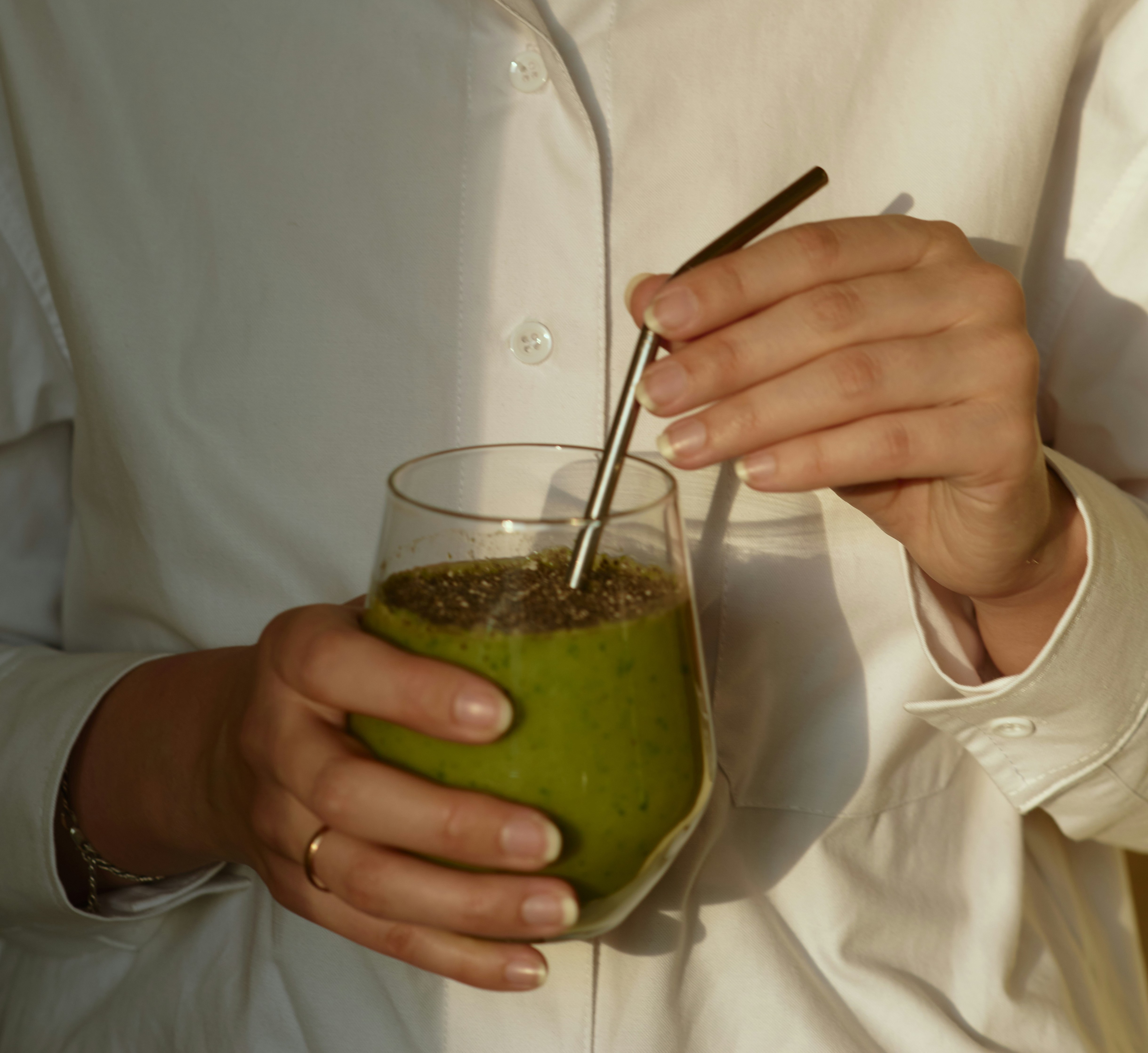Detox and Cleanse. What Science Says and the Evolution of a Wellness Trend
Detox and Cleanse: What Science Says and the Evolution of a Wellness Trend

The idea of detoxification as a path to a holistic body reset is not new. Cultures worldwide have practiced herbal remedies, fasting, and other natural forms of body and mind purification for centuries. In recent years, modern science has begun to support these ancient practices, demonstrating that detoxification can improve digestion, strengthen the immune system, and even promote mental clarity (Chauhan, Dr. Partibha, 2025).
Our body naturally detoxifies itself every day. Detoxification is the natural process of eliminating and neutralizing toxins through the colon, liver, kidneys, lungs, lymphatic system, and skin. In fact, internal detoxification is one of the most basic and necessary automatic bodily functions, as our metabolic processes mean we are constantly accumulating toxic matter in the body (Page, Linda G. Healthy Healing's Detoxification, 2008).
The wellness industry in general has experienced a boom, and detox treatments form a significant part of it. The global wellness industry is estimated to reach $7.3 trillion in 2025 (Global Wellness Institute. Global Wellness Economy Monitor 2024. Miami, FL). What was once a niche has become mainstream. From juice diets and special juices to dietary plans with supplements and wellness retreats, the offerings have diversified to meet different needs and commitment levels, driven by a growing awareness of health and well-being. The shift has been from more extreme approaches to a more comprehensive and personalized vision, although the basis of "purifying the body" remains the central pillar.
When we talk about Detox & Cleanse supplements, we are inevitably talking about herbal, phytotherapeutic, and nutraceutical supplements, based on herbs and plant extracts. The global herbal supplements market was valued at USD 86.84 billion in 2022 and is projected to reach USD 172.99 billion by 2032, with a CAGR of 7.3% between 2023 and 2032 (Herbal Supplements Market, Emergen Research report). Detox supplements constitute a part of this vast market.
Everyone on social media has come across specialized clinics for retreats and detoxes. There's an observable increase in specialized retreats and spas. These centers offer detox programs ranging from a few days to several weeks. They often combine specific diets (often based on juices or broths), activities like yoga, meditation, massages, hydrotherapy treatments, and consultations with nutritionists or therapists. Here, supplementation, specialized hydration, and superfoods are certainly present.
But what makes up this type of supplement? What's the difference between cleanse supplements and detox supplements?
While both aim to improve well-being, they operate differently. A cleanse primarily focuses on resting the digestive system, reducing bloating, and promoting regular bowel movements; it acts as a digestive reset. A detox, however, supports the body's natural detoxification organs, especially the liver, guiding the body through the processes of releasing, neutralizing, and eliminating toxins.
- Cleanse products focus on the gastrointestinal tract. They aim to clear residue, relieve constipation, or eliminate toxins present in the intestines. They frequently include juices, fibers, mild laxatives, or components that "sweep" the digestive system, facilitating waste elimination and promoting a feeling of lightness.
- Detox products aim to mobilize and eliminate accumulated toxins in the body (chemicals, heavy metals, metabolic waste), supporting the natural processes of detoxifying organs like the liver and kidneys. They may involve dietary changes, fasting, supplement intake, specific juices, or therapies that seek to stimulate endogenous elimination pathways.
The detox & cleanse supplement market is vast and includes everything from herbal preparations and plant extracts to vitamin and mineral complexes, probiotics, and superfoods. Popular ingredients include artichoke, milk thistle, dandelion, green tea, aloe vera, activated charcoal, spirulina, chlorella, ginger, and turmeric, among others.
What are the main active ingredients in these supplements, and what can we say about them based on scientific evidence?
Many liver cleansing and detoxification products, for example, contain ingredients that can be beneficial for overall health. Firstly, milk thistle is a common component in these products. Studies have shown that milk thistle supplementation can improve liver health in people with liver diseases or damage. Other common ingredients in liver drinks and supplements are turmeric, ginger, and cinnamon, all of which can combat oxidative stress, reduce signs of inflammation, and decrease the risk of various chronic diseases.
Additionally, some formulas include dandelion root and burdock. These ingredients may also have health benefits, such as combating oxidative stress and reducing inflammation, though more research is needed in this area.
Artichoke leaf has antioxidant properties that can protect the liver. Research conducted in animals shows it can help liver cells regenerate. In studies conducted in 2016 and 2018 with people with non-alcoholic fatty liver disease, artichoke leaf reduced markers of liver damage compared to a placebo. However, more well-designed clinical studies are still needed to confirm these effects in humans.
In addition to milk thistle, artichoke, and dandelion, liver and kidney supplements often incorporate a mixture of other ingredients such as Mexican wild yam root, yellow dock root extract, hawthorn berry, and chanca piedra. While these have a long history in phytotherapy, more clinical studies are needed to reaffirm their efficacy.
Spices and herbs such as garlic, mustard, cinnamon, cumin, clove, thyme, basil, pepper, ginger, and rosemary, among others, have shown antimicrobial activity against various microorganisms. The consumption of herbal medicines is increasing worldwide as an alternative treatment to alleviate various health conditions, including heart disease, diabetes, high blood pressure, and even certain types of cancer. However, unlike medications, herbal products are not regulated for purity and potency. Therefore, when considering products like detox supplements or infusions, it's important to verify their origin and, preferably, if they have been analyzed by an independent organization. Certifications like NSF International or USP help verify the product's safety, purity, and efficacy.
As with all supplementation, lifestyle habits are crucial in Detox & Cleanse. In communicating about this category, we must ensure the dissemination of healthy and safe practices and foster a critical and holistic perspective. Detox treatments, especially those accompanied by restrictive diets, should be supervised by qualified professionals who, in addition to ensuring their safety, manage consumer expectations. A 2022 meta-review published in Cureus by Graham et al. (Clinical Implications of Herbal Supplements in Conventional Medical Practice: A US Perspective) specifically discusses the precautions that should be taken when consuming supplements for individuals with specific health conditions and pathologies. There are no miracle supplements. Nor are there miracle diets.
What is clear is that, although the body has its own cleansing and detoxification mechanisms, if we help it with good eating habits and sensible tools, such as quality supplementation, the benefits for our body are unanimously supported. A 2025 study by Telbany et al. from The American College of Gastroenterology reveals a prosperous market for detox supplements, specifically liver supplements. The prevalence of bold health claims, high consumer satisfaction, and significant sales highlight the need for evaluation and research of these products to further sustain this supplementation practice at this and other levels.




.jpg)
.jpg)


.jpg)